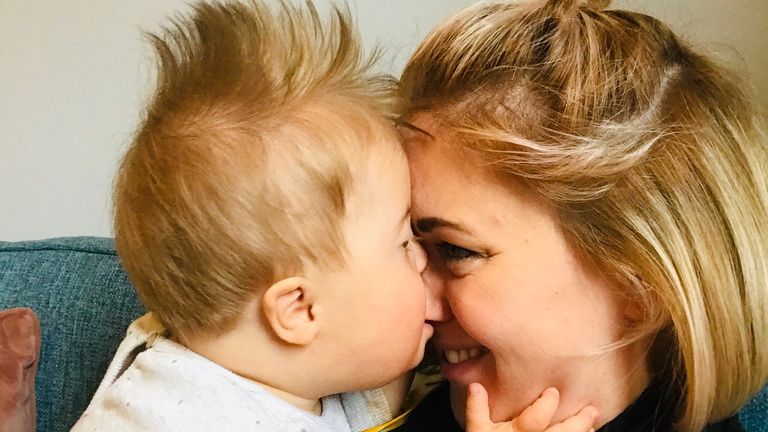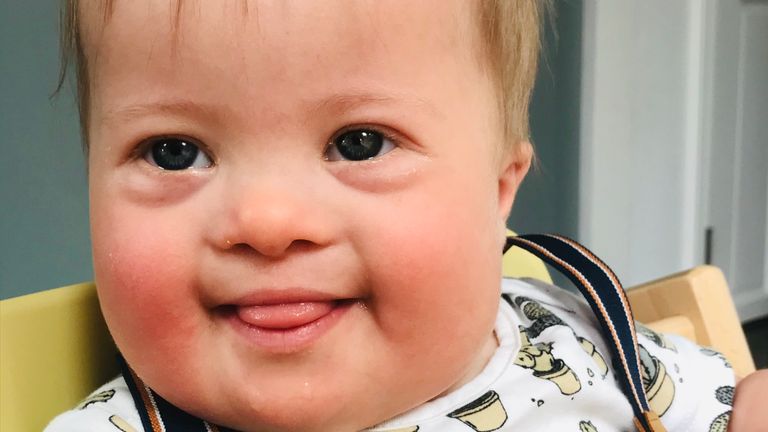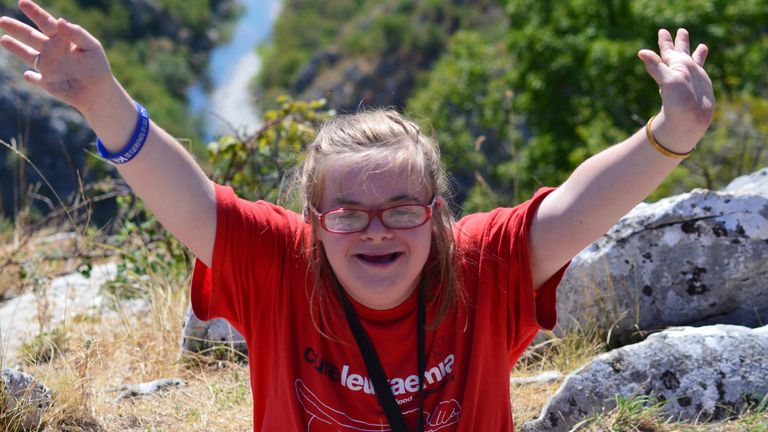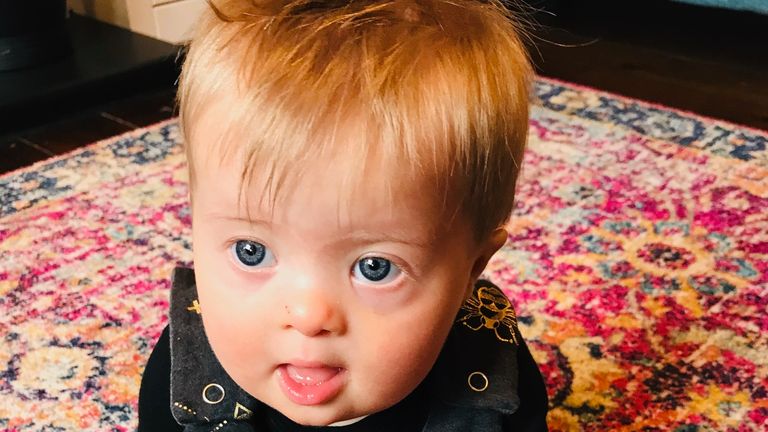Mum of baby with Down's syndrome suing government over abortion law
The action aims to end a law which allows a termination after 24 weeks of pregnancy if a "severe foetal abnormality" is detected.
Monday 25 May 2020 00:09, UK
The mother of a baby with Down's syndrome is suing the government for allowing disabled children to be aborted after 24 weeks of pregnancy.
Maire Lea-Wilson says she was encouraged in hospital to abort her son, who is now 11 months old. She felt the assumption was "that you would want to abort a child with Down's syndrome".
Abortions can take place in the first 24 weeks of pregnancy in England, Scotland and Wales. They must be approved by two doctors, who agree that having the baby would pose a greater risk to the physical or mental health of the woman than a termination.
After 24 weeks a woman can have an abortion if she is at risk of grave physical and mental injury, or there is a severe foetal abnormality, including Down's syndrome.
Mrs Lea-Wilson said she "can't imagine life" without her son, and wants unborn children with Down's syndrome to have "equal rights".
"He's had some challenges and done so well so we're just really proud of him... I have two sons and I love and value them equally and I think it just seems really wrong that the law doesn't value them equally and we want to change that," she said.
"The first thing that they wanted to talk about (in hospital) was whether we wanted to terminate the pregnancy, and I was 34 weeks pregnant at the time, so it was quite a difficult question to get asked.
"It is really tough to think back on that, I find it really difficult to think that Aidan's life isn't seen as valuable as his older brother's, it makes me worry as to whether he'll be seen the same or treated the same.
"I also really worry that when he's older if this law is still in place, how will that make him feel: that he's not as valuable, that he doesn't have equal worth?"
The joint legal action has also been brought by 24-year-old Heidi Crowter who has Down's syndrome. She says the law as it stands makes her feel "rejected by society".
Miss Crowter says she enjoys watching Liverpool play football and spending time with her fiancée.
She said: "I think this (cause) is really important because it's downright discrimination.
"We are all equally valued and I am someone who has Down's syndrome and it makes me feel upset, rejected by society and looked down on. It makes me feel like I shouldn't exist in this world."
Ann Furedi is chief executive of the British Pregnancy Advisory Service. She says women do not take the decision to abort a disabled child "lightly".
"Often (women) already have young children that they are trying to look after and care for and the addition of a child that will be profoundly disabled can just push them to the stage where they think that they simply can't continue the pregnancy," she said.
"Often there are financial problems, often it can bring out problems within the relationship... we need to make decisions about pregnancy based on that inner sense of what we can do and our own conscience.
"It's not a matter of somebody else making the decision for us and so when a woman thinks that ending the pregnancy is the right thing for her and her family, I really strongly believe that should be her decision to make."
The Department for Health and Social Care says it is not able to comment on legal proceedings.
Legal papers will be lodged with the High Court next week and a judge will then decide if this landmark case can proceed to trial.








